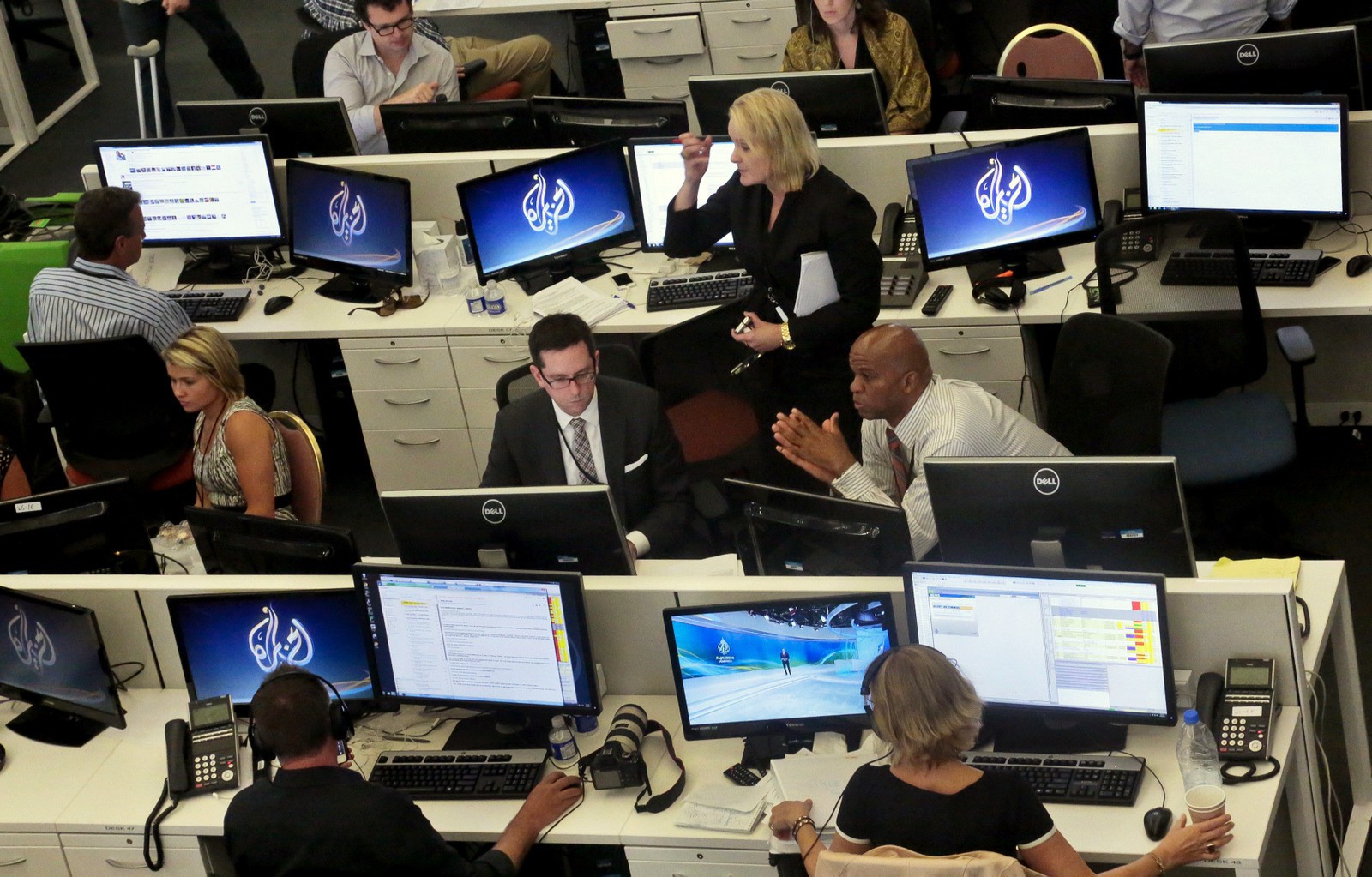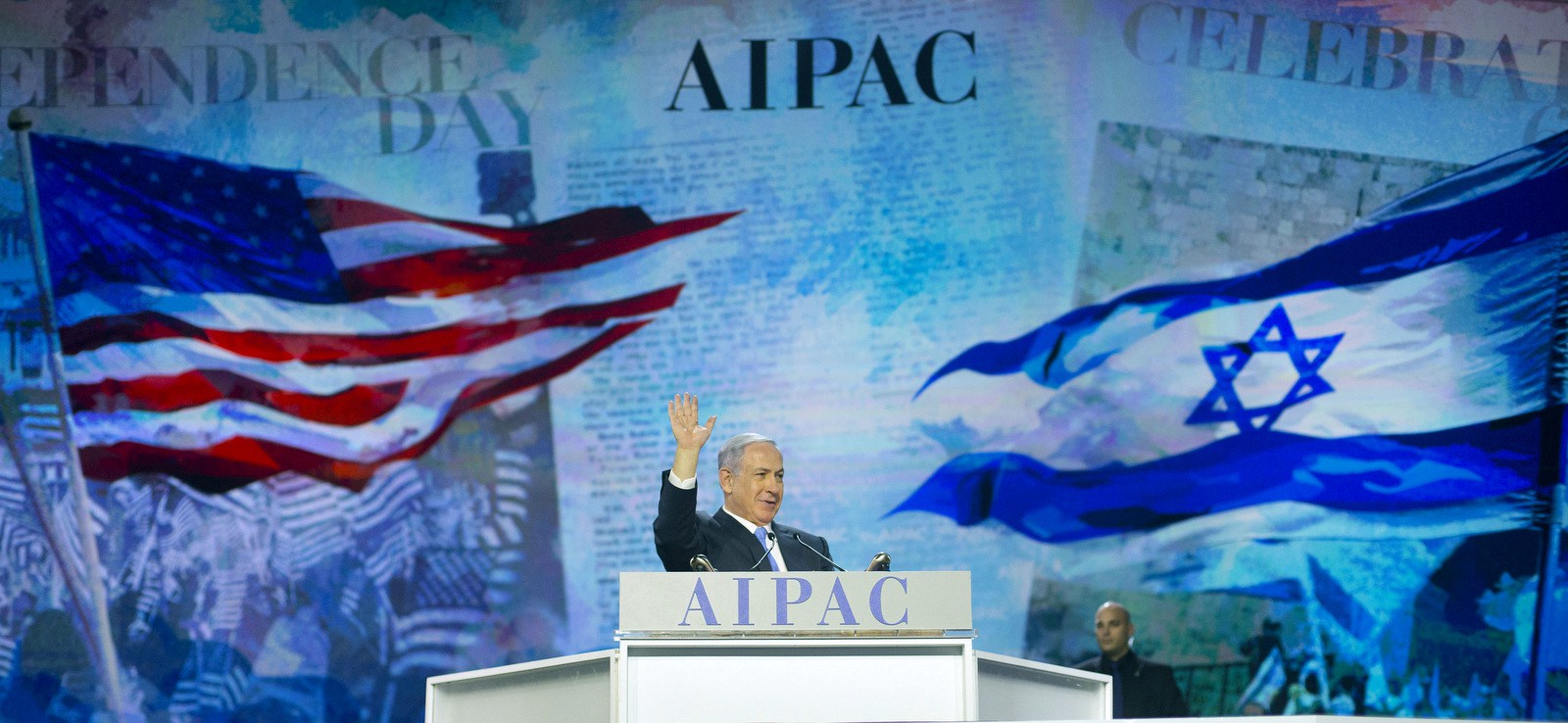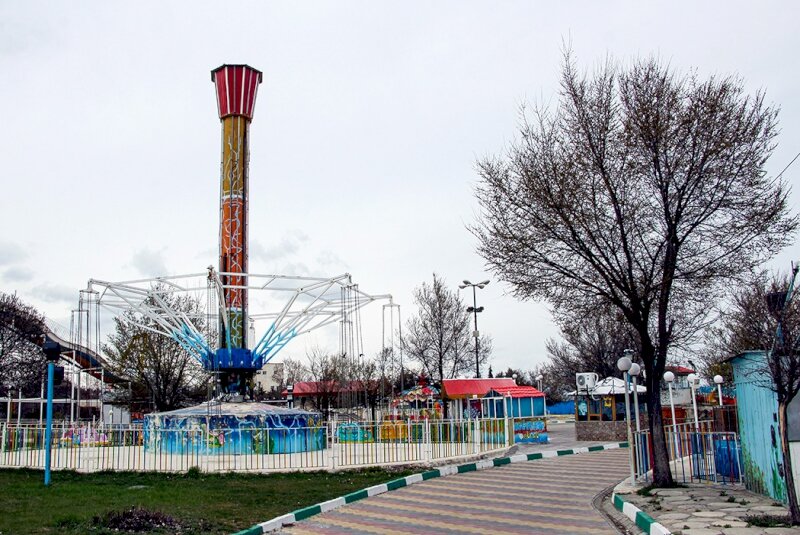There are, however, many exceptions to those who must register, such as diplomats, artists, priests, and “any news or press service organized under the laws of the United States.” In other words, a law firm lobbying for a foreign government or company must register while news services funded by foreign governments — like Al Jazeera, France24, BBC or Deutsche Welle — are — generally — off the hook.
<img src=”http://www.mintpressnews.com/wp-content/themes/core/images/ads/ad-mp-squigl.jpg” class=”no-thickbox”/>This last exception is why the U.S. Department of Justice’s announcement on Thursday that the TV news channel Russia Today (RT), which receives its funding from the Russian government and a consortium of Russian banks, must register as a foreign agent came as a surprise to many. RT, which has been active in the U.S. since 2005, is suddenly being asked to register as a foreign agent under FARA, only after political pressure against Russian entities and perceived state actors reached a boiling point.
To be sure, the U.S. government has toyed with the idea of shutting down RT in recent years. In 2015, the then-chief of the U.S. Broadcasting Board of Governors (BBG), Andrew Lack, — responsible for overseeing U.S.-funded news agencies such as Voice of America and Radio Liberty — equated RT’s news coverage to terrorist groups such as Daesh (Islamic State) and Boko Haram. A week later, then-Assistant Secretary of State Victoria Nuland discussed curbing the channel’s operations in response to its coverage of the U.S.-backed coup in Ukraine.
FARA enforcement selective and inconsistent
 <img class=”size-full wp-image-234359″ src=”http://www.mintpressnews.com/wp-content/uploads/2017/11/AP_332429186364.jpg” alt=”Al-Jazeera America editorial newsroom staff preparing for their first broadcast in New York. (AP/Bebeto Matthews)” width=”1600″ height=”1023″ srcset=”http://www.mintpressnews.com/wp-content/uploads/2017/11/AP_332429186364.jpg 1600w, http://www.mintpressnews.com/wp-content/uploads/2017/11/AP_332429186364-300×192.jpg 300w, http://www.mintpressnews.com/wp-content/uploads/2017/11/AP_332429186364-768×491.jpg 768w, http://www.mintpressnews.com/wp-content/uploads/2017/11/AP_332429186364-800×512.jpg 800w, http://www.mintpressnews.com/wp-content/uploads/2017/11/AP_332429186364-1145×732.jpg 1145w” sizes=”(max-width: 1600px) 100vw, 1600px” />
<img class=”size-full wp-image-234359″ src=”http://www.mintpressnews.com/wp-content/uploads/2017/11/AP_332429186364.jpg” alt=”Al-Jazeera America editorial newsroom staff preparing for their first broadcast in New York. (AP/Bebeto Matthews)” width=”1600″ height=”1023″ srcset=”http://www.mintpressnews.com/wp-content/uploads/2017/11/AP_332429186364.jpg 1600w, http://www.mintpressnews.com/wp-content/uploads/2017/11/AP_332429186364-300×192.jpg 300w, http://www.mintpressnews.com/wp-content/uploads/2017/11/AP_332429186364-768×491.jpg 768w, http://www.mintpressnews.com/wp-content/uploads/2017/11/AP_332429186364-800×512.jpg 800w, http://www.mintpressnews.com/wp-content/uploads/2017/11/AP_332429186364-1145×732.jpg 1145w” sizes=”(max-width: 1600px) 100vw, 1600px” />
Al-Jazeera America editorial newsroom staff preparing for their first broadcast in New York. (AP/Bebeto Matthews)
Upon RT’s imminent registration as a “foreign agent,” it would be one of the few media outlets to do so in FARA’s history, joining a few state-funded outlets such as Japan’s NHK and the China Daily newspaper.
However, many other state-funded outlets with operations similar to RT continue to operate within the United States without the designation and accompanying scrutiny, of acting as a foreign agent. This has held true even in cases where use of the news outlet by a foreign government to exert influence is well-documented.
For instance, the international news channel Al Jazeera – funded entirely by the government of Qatar – has never been forced to register as a foreign agent, despite operating a U.S.-focused branch and even though leaked State Department cables from 2009 noted that the U.S. government has long viewed Al Jazeera to be “an instrument of Qatari influence.” The cable also notes that the government of Qatar regularly uses Al Jazeera “as a bargaining tool to repair relationships with other countries, particularly those soured by Al Jazeera’s broadcasts, including the United States.”
In addition to Al Jazeera, numerous other state-funded news outlets function within the United States but are not required to register as foreign agents, even when they mirror the bias of their own governments. For example, the British Broadcasting Corporation (BBC) is funded by the U.K. Foreign Office. In its coverage of the Syrian conflict, the BBC has consistently supported the foreign-funded Syrian opposition in its reporting, including fawning coverage of the White Helmets group, which – like the BBC – is largely funded by the U.K. Foreign Office. However, BBC’s Syria coverage fit with the U.S. narrative at the time, unlike RT’s Syria coverage.
Further illustrating the inconsistencies in the government’s application of FARA to foreign entities is the fact that some individuals and organizations that specifically lobby the government on behalf of foreign governments have successfully eluded registering under FARA despite past government attempts to make them do so. For example, the Podesta Group, the lobbying firm founded by Hillary Clinton’s former campaign chair John Podesta and his brother Tony, failed to register under FARA while lobbying on behalf of the Russian government-owned company Uranium One, despite having collected $180,000 in lobbying fees in 2012, 2014 and 2015.
 <img class=”size-full wp-image-212059″ src=”http://www.mintpressnews.com/wp-content/uploads/2015/12/AP_546850447401.jpg” alt=”Israeli Prime Minister Benjamin Netanyahu waves to members of the audience before speaking at the American Israel Public Affairs Committee (AIPAC) Policy Conference in Washington, Monday, March 2, 2015. (AP Photo/Pablo Martinez Monsivais)” width=”1600″ height=”738″ srcset=”http://www.mintpressnews.com/wp-content/uploads/2015/12/AP_546850447401.jpg 1600w, http://www.mintpressnews.com/wp-content/uploads/2015/12/AP_546850447401-300×138.jpg 300w, http://www.mintpressnews.com/wp-content/uploads/2015/12/AP_546850447401-768×354.jpg 768w, http://www.mintpressnews.com/wp-content/uploads/2015/12/AP_546850447401-800×369.jpg 800w” sizes=”(max-width: 1600px) 100vw, 1600px” />
<img class=”size-full wp-image-212059″ src=”http://www.mintpressnews.com/wp-content/uploads/2015/12/AP_546850447401.jpg” alt=”Israeli Prime Minister Benjamin Netanyahu waves to members of the audience before speaking at the American Israel Public Affairs Committee (AIPAC) Policy Conference in Washington, Monday, March 2, 2015. (AP Photo/Pablo Martinez Monsivais)” width=”1600″ height=”738″ srcset=”http://www.mintpressnews.com/wp-content/uploads/2015/12/AP_546850447401.jpg 1600w, http://www.mintpressnews.com/wp-content/uploads/2015/12/AP_546850447401-300×138.jpg 300w, http://www.mintpressnews.com/wp-content/uploads/2015/12/AP_546850447401-768×354.jpg 768w, http://www.mintpressnews.com/wp-content/uploads/2015/12/AP_546850447401-800×369.jpg 800w” sizes=”(max-width: 1600px) 100vw, 1600px” />
Israeli Prime Minister Benjamin Netanyahu waves to members of the audience before speaking at the American Israel Public Affairs Committee (AIPAC) Policy Conference in Washington, Monday, March 2, 2015. (AP/Pablo Martinez Monsivais)
Another relevant example of an unregistered group lobbying on behalf of a foreign government is the American Israel Public Affairs Committee (AIPAC), which describes itself as “America’s Pro-Israel Lobby” — essentially acknowledging that it lobbies the U.S. government on behalf of the Israeli government. According to its website, AIPAC “urges all members of Congress to support Israel through foreign aid, government partnerships, [and] joint anti-terrorism efforts.”
Despite this, AIPAC has avoided registering as a foreign agent for 55 years — with the last attempt to compel it to register as such taking place in 1962-63, when the Kennedy administration sought to force its predecessor, the American Zionist Council, to register and open its finances to federal scrutiny.
Since then, AIPAC has been instrumental in ensuring the continuation of billions of dollars in U.S. aid to Israel annually despite Israel’s strong economy. It has also engaged in espionage. For instance, after receiving classified presidential directives and other documents pertaining to America’s Iran policy from a U.S. colonel in 2005, AIPAC then forwarded that highly sensitive information to Israeli government officials as well as to select members of the U.S. media.
Given the inconsistencies of treatment, as well as the milieu of anti-Russia hysteria that has become rapidly normalized in U.S. politics over the last year, the DOJ’s decision to force RT to register as a foreign agent seems to be the latest indication that the Trump administration is bowing to political pressure to punish Russian entities and businesses over the government’s alleged “meddling” in last year’s election — an allegation that has yet to be proven.
Top photo | A portion of the website for the website fara.gov, on the Foreign Agents Registration Act, is photographed in Washington, Aug. 18, 2016. (AP/Jon Elswick)
Source Article from https://uprootedpalestinians.wordpress.com/2017/11/13/why-does-rt-have-to-register-under-the-foreign-agents-registration-act-but-not-aipac/
Related posts:
Views: 1
 RSS Feed
RSS Feed

















 November 13th, 2017
November 13th, 2017  Awake Goy
Awake Goy 





 Posted in
Posted in  Tags:
Tags: 
















